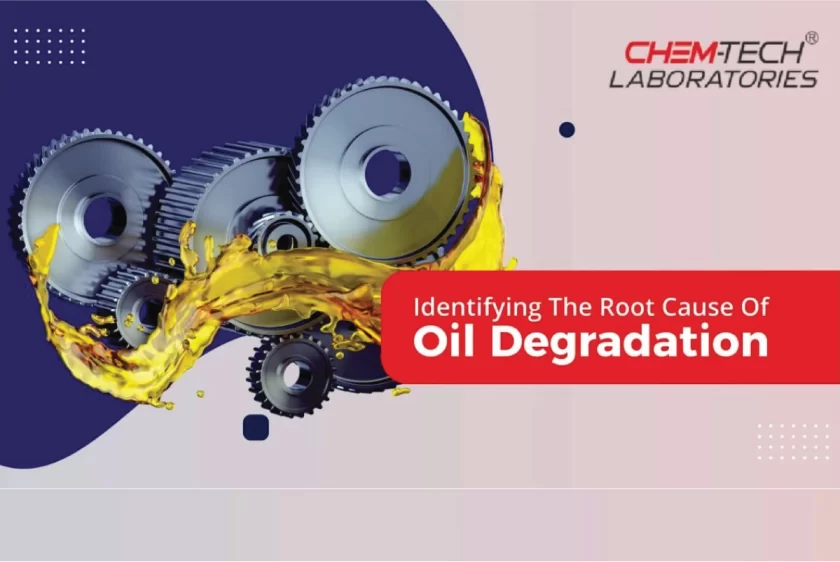Oil Degradation is one of the most important concerns for industries today. It is a complex process that occurs when oil reacts with oxygen, water, and other chemicals to produce toxic substances. Timely identifying the root cause can save from equipment failure, unplanned downtime, and significant costs, less component life-cycle, environmental damages.
Root Cause Analysis for Oil Degradation is a process of understanding the root cause of the degradation problem and taking action to rectify it. It is the first step in the management of such oil degradation issues and helps in preventing future problems from occurring. The main goal of an RCA is to find out what happened, why it happened and now what can you do to prevent it from happening again in future. Insoluble particulates and viscosity changes are two of the most common oil degradation problems that affect equipment performance. Therefore, the diagnostic analysis must detect these conditions in oils, and lubricants. As the best chemical testing laboratory in India, Team Chem-Tech is here to explain the root causes of oil degradation in detail. Let’s get started.
Root Causes Of Oil Degradation
Oxidation
Oxidation is a reaction between oil molecules and oxygen molecules.
There can be an increase in viscosity and the formation of varnish, sludge, and sediment as result. Depletion of the base oil and breakdown can also occur. The acid number of oil may increase as it oxidizes. Oxidation can also lead to rust and corrosion on the equipment.
Thermal Breakdown
The temperature of lube oils is a concern in a working environment. Apart from the moving components of the machinery, the lube oils also dissipate heat. At times, lube oils may dissipate more than the recommended heat levels, exceeding the thermal stability points. It can induce polymerisation, start side reaction, thermal breakdown, and lubricant decomposition. Also, many times increased velocity hampers the performance.
Contamination
Contamination of oils with foreign substances such as water, air, dirt, and metal can accelerate the lube oil degradation process. Typically copper and iron are considered catalysts for lube oil degradation. Water and air act as large sources of oxygen which reacts with oil and speeds up the degradation. Needless to say, contaminant-free oils are the preferred choice. So, keeping it away from the degradation catalysts can help. If you think exposure to contaminants is hampering your oil and machine’s health, get in touch with us for RCA soon.
Depletion Of Additives
The majority of additive systems are designed to be sacrificial. They often undergo different stages of transition during depletion. Keeping a check on the additive levels is a crucial step of an RCA program. It helps in knowing the overall health of lube oils and provides insights into the degradation mechanism. Leave your additive depletion monitoring to experts at Chem-Tech, the best lube oil testing laboratory in India. We make this complex additive component testing reliable for many industries.
Electrostatic Spark Discharge
Did you know- When dry, clean oil quickly flows through clearances, the internal friction in the oil can produce static electricity? This may accumulate to the point where it induces sudden spark or discharge. These sparks generally happen on sharp surfaces and mechanical filters at approx 10,000°C and 20,000°C.
Trust Chem-Tech For Root Cause Analysis
ChemTech Laboratories, the best chemical testing laboratory in India offers a range of root cause analysis services for a variety of different types of lube oils. We have clients from all over the globe and are known for the reliability and accuracy of our tests. Feel free to get in touch with us and book an appointment for RCA soon.


